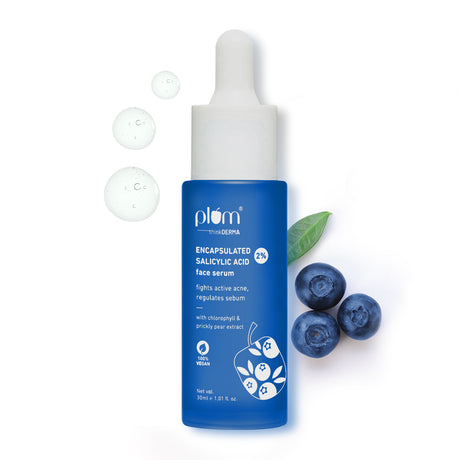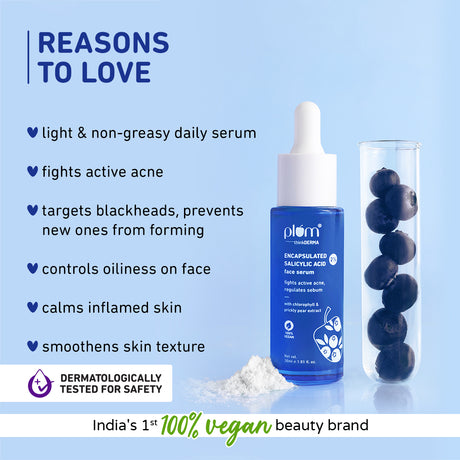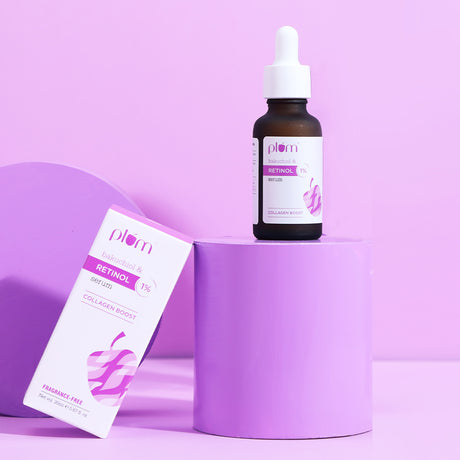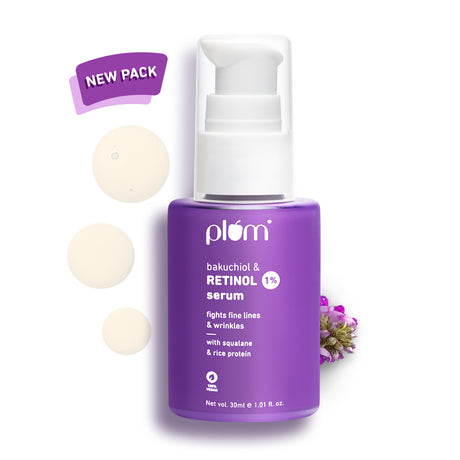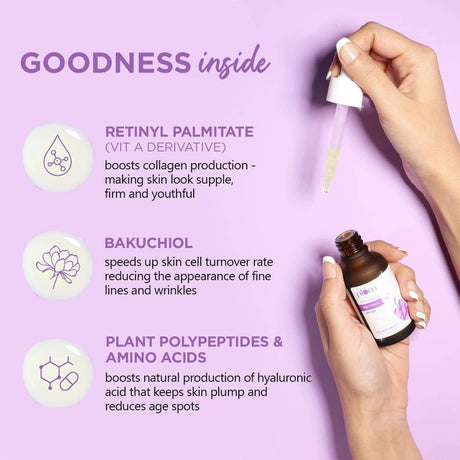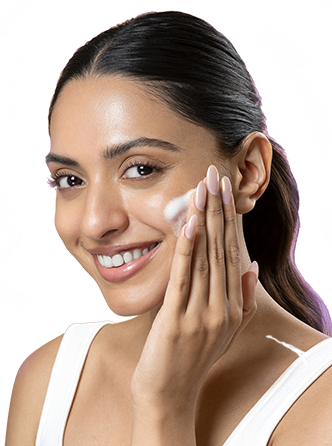
One of the most challenging skin types to manage in a tropical country like India, oily skin is identified by symptoms like a shiny complexion, greasiness, frequent breakouts, and clogged pores.
However, it is not the skin type that is a problem, but the amount of oil the skin secretes on a normal day.
While a certain amount of oil is necessary for healthy skin functioning, excessive sebum production often causes problems.
However, the right answer to how to control oil on the face is not as tricky as it seems. The right skincare routine and habits can significantly help you control sebum on your face.
In this blog, let’s look at ways to manage sebum production in your face and get healthier skin.
What are the causes of oily skin?

Sebaceous glands, located beneath the skin's surface, produce sebum; an oily substance that lubricates and protects the skin. When these glands become overactive, they produce too much sebum, leading to oily skin.
Following are some causes that trigger excess sebum production in your skin.
1. Genetics
Just like health conditions, the characteristics of your skin are also significantly determined by your genetics. You are most likely to suffer from excess oil production and have oily skin if one or both of your parents have had oily skin.
2. Hormonal changes
Hormonal changes play a significant role in altering your skin conditions. Excess sebum production is a condition that is easily triggered by hormonal changes in your body.
For example, during life events like puberty, menstruation, or pregnancy, you can witness increases in oil production. This can be attributed to androgens, the hormones responsible for oil production that can fluctuate and cause your sebaceous glands to become more active.
3. Diet
However unpleasant it might sound, your diet can also be a major reason why your skin is more greasy and oily than your peers.
A diet high in unhealthy fats, salt, and sugars can exacerbate oily skin. It can also lead to excess acne breakouts and pigmentation.
Therefore, if you want to know “how to reduce sebum production on the face”, start consuming a balanced diet with plenty of fruits, vegetables, and lean proteins to better manage oil production.
4. Skipping moisturization
As ironic as it is, skipping moisturization is one of the many reasons for uncontrolled oil production. When your skin is not hydrated enough, your glands tend to produce excess sebum to compensate for moisture loss in your skin.
5. Lifestyle Factors
Wrong lifestyle habits like stress and lack of sleep, while can impact your health, it can also trigger issues like greasiness and excess oil production.
How to reduce sebum production on the face?

While you cannot change your skin type, you can reduce sebum production and manage oil on your skin.
Here are some tips to help you do so.
Using the right ingredients
For oily skin, it is crucial to use specific ingredients that help manage sebum, unclog pores, and prevent acne breakouts. Here are some ingredients that you should opt for to reduce sebum production:
1. Salicylic Acid: Salicylic acid for skin is the most common skincare ingredient suggested by dermatologists to manage oily acne-prone skin. A beta-hydroxy acid (BHA), salicylic acid penetrates the skin and helps exfoliate the pores, clearing out excess oil and preventing breakouts.
2. Niacinamide: One of the most versatile ingredients for all skin types, niacinamide, also known as vitamin B3, helps regulate oil production and reduce inflammation. Apart from reducing the greasiness and excess shine, it also helps improve skin texture and minimize the appearance of large pores.

3. Benzoyl peroxide: An antibacterial agent, benzoyl peroxide targets and reduces acne-causing bacteria. It also helps to remove excess oil and dead skin cells, keeping pores clear.
4. Tea tree oil: Tea tree oil has natural antibacterial and anti-inflammatory properties that help reduce oil production while reducing, preventing, and treating mild acne. It is also used as a spot treatment and is often included in skin care products for acne.
5. Retinoids: Retinoids, interchangeably known as retinol, are a derivative of vitamin A. Apart from its anti-aging properties, retinoids help regulate cell turnover and reduce oil production. They help manage oily skin while preventing acne.
Pick these ingredients while shopping for oily skin products.
Suitable skincare routine
Opt for a dedicated skincare routine for oily skin that helps you keep your skin clean and hydrated and suit your skin.
A basic cleansing-toning-moisturizing-protecting(CTMS) routine is extremely important for healthy skin. However, also ensure to add serums for oily skin that help control oil and treat acne.
Additionally, opt for clay masks and exfoliation once a week to absorb excess oil and clear off your pores.
It is also crucial to read the labels of the products you use to use specific products formulated for your skin type.
While checking the ingredients list, look for makeup and skincare products that won’t clog your pores.
Look for labels that say "oil-free" or "matte" to help control shine throughout the day.
1. Diet: According to experts, highly processed foods, high in glycemic index, can increase oil in your skin and cause acne breakouts.
Therefore, probably the easiest way to manage oily skin and reduce its symptoms is by modifying your diet.
Eat a balanced diet rich in fruits, vegetables, and lean proteins to help control oil production.
Reduce your intake of dairy products and avoid fried food and food high in sugar and salt. Moreover, ensure you drink at least 8 glasses of water in a day to stay hydrated as dehydration can trigger the skin to produce more oil.
2. Stress Management: Practice relaxation techniques like yoga, meditation, and regular exercise to manage stress to keep your skin healthy.
Controlling oil on your face is essential for maintaining clear and healthy skin.
By understanding the causes of oily skin and incorporating the right ingredients and lifestyle habits, you can effectively manage oil production and enjoy a balanced complexion.
FAQs
How to control oil production on the face?
Follow a dedicated skincare routine with products that suit your skin type. Look for ingredients like salicylic acid, niacinamide, etc., in your products for the best results. Maintain a balanced diet and manage stress levels.
How to control oil on your face after makeup?
Use oil-free, matte-finish makeup products. Apply a mattifying primer before makeup and use blotting papers throughout the day to absorb excess oil.
How can I control my oily skin naturally?
Ensure to cleanse, tone, treat, and moisturize your day twice. Incorporate natural ingredients like green tea, tea tree, salicylic acid, niacinamide and clay masks into your skincare routine. Maintain a healthy diet and stay hydrated.
What foods make skin oily?
Foods high in unhealthy fats and sugars can increase oil production. Stick to a balanced diet with plenty of fruits, vegetables, and lean proteins.
Why is my face so oily?
Overactive sebaceous glands produce excess sebum, leading to oiliness. However, factors like genetics, hormones, diet, medications, and lifestyle habits can also contribute to oily skin.
What ingredients reduce oil on the face?
Ingredients like salicylic acid, niacinamide, benzoyl peroxide, and retinoids are effective in controlling oil production and reducing shine.



